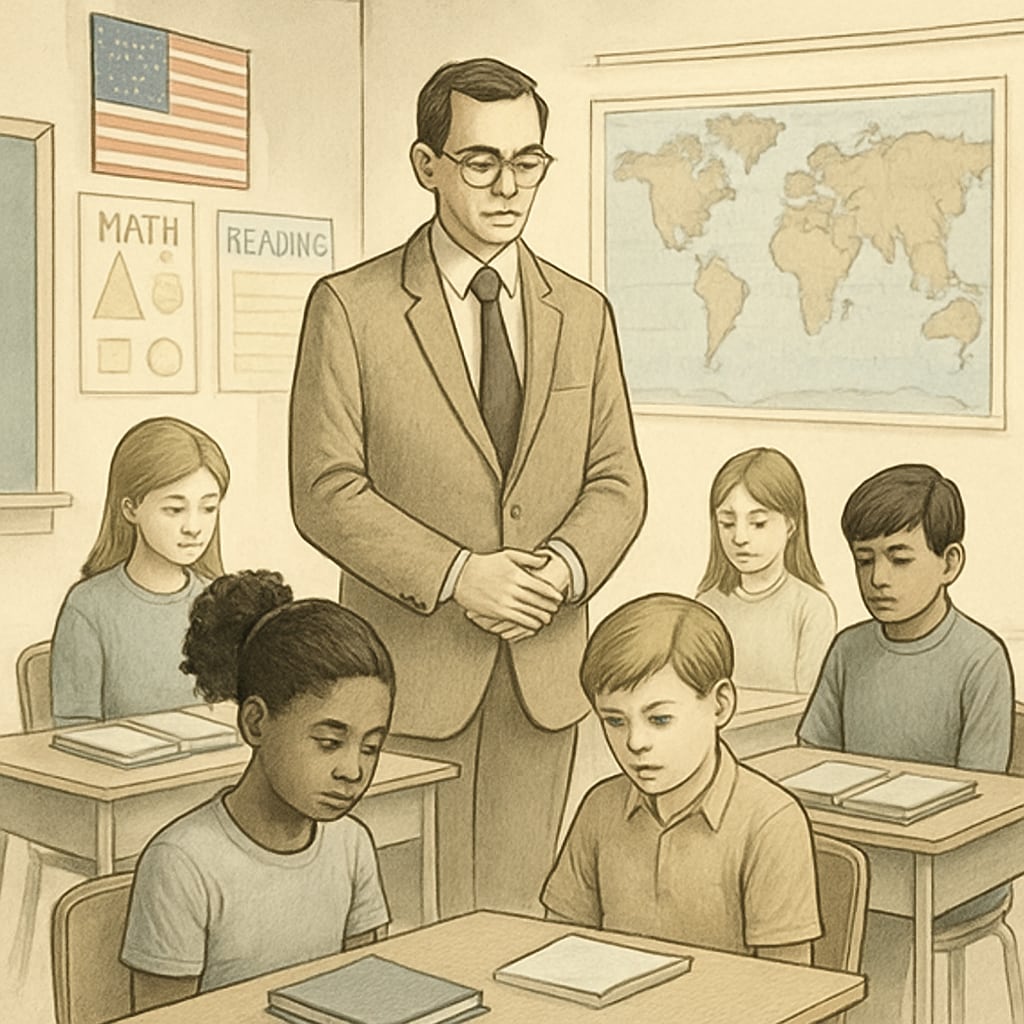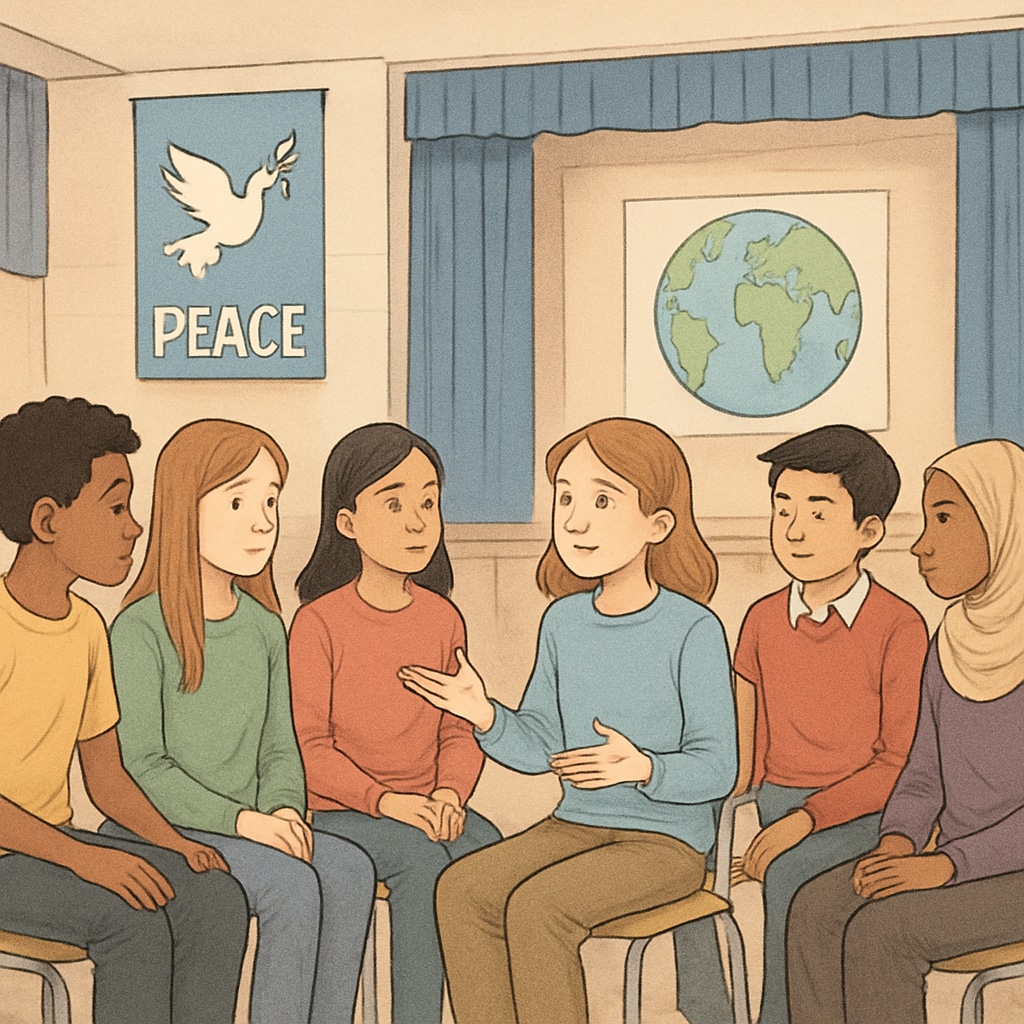In recent weeks, a contentious debate has emerged regarding how schools address the Gaza conflict through moments of silence. Specifically, many schools, rather than focusing solely on Gaza, have opted to generalize these moments to honor all global war victims. This “de-specification” approach has been met with both support and criticism. As educators navigate the intersection of education and politics, this issue raises questions about how schools can address sensitive topics responsibly while maintaining neutrality.

The Complexities of Addressing the Gaza Conflict in Schools
Discussing ongoing political conflicts such as Gaza in educational settings is inherently challenging. On one hand, schools are spaces of learning where students should be encouraged to engage with global events critically. On the other hand, these institutions must also remain mindful of the diverse beliefs and backgrounds of their students and families. As a result, many schools struggle to find a balance between fostering awareness and avoiding perceived partisanship.
In the case of the Gaza moment of silence, schools opting to generalize the event to commemorate all global victims of war argue that it ensures inclusivity. By honoring victims of all conflicts, they aim to avoid alienating students who might have personal or cultural ties to different sides of the Gaza issue. However, critics contend that this approach dilutes the significance of the specific conflict, potentially undermining the opportunity to educate students about its unique context and consequences.
Implications of Generalizing the Moment of Silence
Generalizing a moment of silence for Gaza into a broader commemoration raises several important questions. While inclusivity is a commendable goal, this approach risks being perceived as a form of “conflict avoidance.” By sidestepping the specific circumstances of the Gaza conflict, schools may inadvertently send the message that certain issues are too controversial to address directly.
Moreover, this approach can lead to missed educational opportunities. For example, discussing the Gaza conflict in its specific context allows educators to explore its historical, social, and political dimensions. Generalizing the moment of silence, however, may reduce the depth of these discussions. Instead of fostering critical thinking about the complexities of Gaza, students are given a more generalized message about the tragedy of war, which, while important, may lack the same educational impact.

How Schools Can Navigate Sensitive Topics
To address the challenges posed by sensitive topics like the Gaza conflict, schools must adopt a thoughtful and balanced approach. Below are some strategies that can help educators and administrators navigate these complex issues:
- Provide Contextual Education: Rather than avoiding specific conflicts, schools can focus on providing historical and geopolitical context that helps students understand the roots and ramifications of these events.
- Encourage Open Dialogue: Creating safe spaces for students to express their thoughts and questions can foster a deeper understanding of complex topics. Teachers can guide these conversations to ensure they remain respectful and constructive.
- Consult with Stakeholders: Engaging with parents, community leaders, and students can help schools gauge the most appropriate way to address sensitive topics while respecting diverse perspectives.
- Adopt a Values-Based Approach: Focusing on universal values such as empathy, peace, and justice can provide a neutral framework for discussing contentious issues.
Ultimately, the goal should not be to avoid controversy but to equip students with the tools they need to engage with it thoughtfully and respectfully. By doing so, schools can fulfill their educational mission while also respecting the diverse beliefs of their communities.
Conclusion: Striking the Right Balance
The controversy surrounding the Gaza moment of silence underscores the broader challenges schools face when addressing sensitive political issues. While generalizing the moment to honor all war victims may seem like a safe compromise, it also risks oversimplifying complex conflicts and missing critical educational opportunities.
Schools have a responsibility to educate students about the world around them, even when it involves difficult or controversial topics. By adopting a balanced, context-driven approach, they can navigate these challenges effectively, fostering both awareness and empathy in their students. As the debate continues, one thing is clear: the way schools approach these issues will have a lasting impact on how future generations understand and engage with the world.
Readability guidance: This article uses short paragraphs and lists to summarize key points, ensuring accessibility for a broad audience. Transitions like “however,” “for example,” and “as a result” are used to maintain flow and coherence. Passive voice and long sentences are minimized to enhance clarity.


